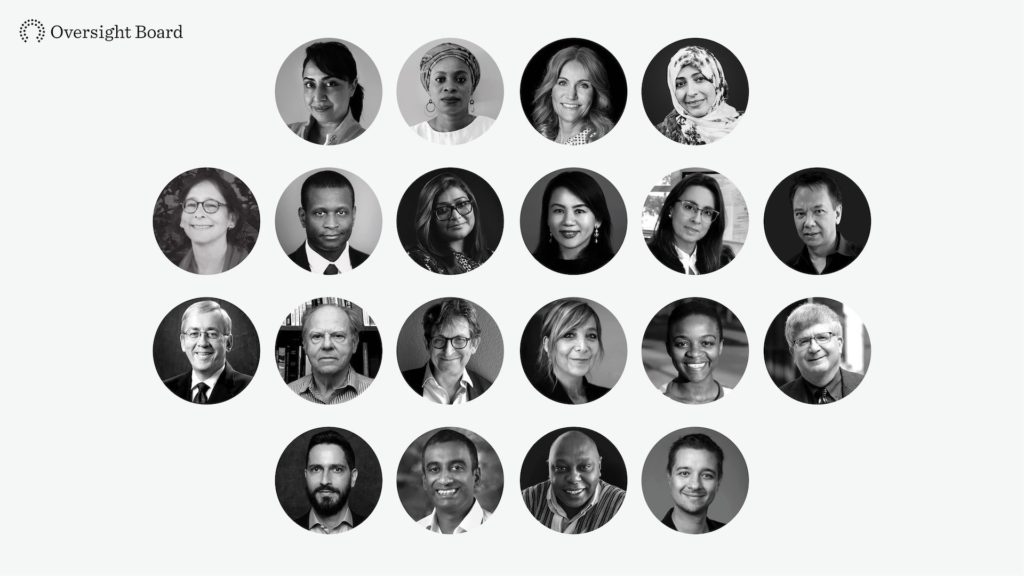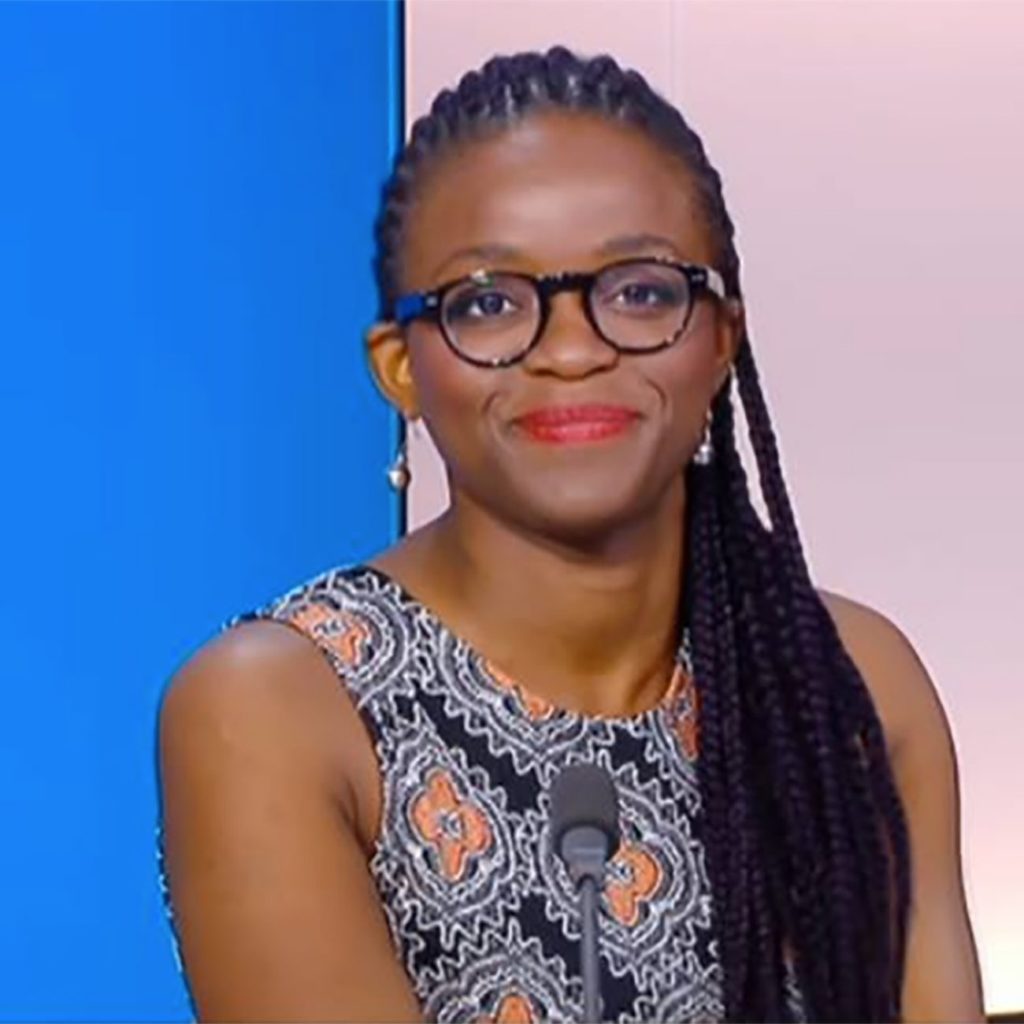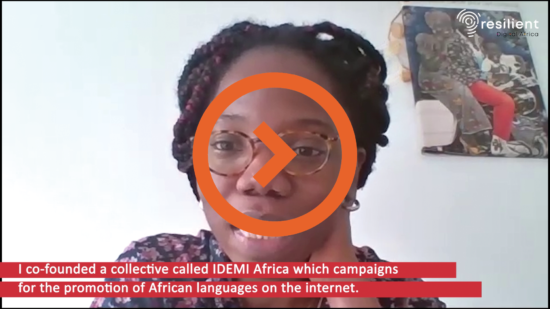You have been noticed also through the Internet Without Borders' network (IWB). Tell us about this experience and its impact?
It’s a French organization created in 2007 with one aim, at the start: to defend freedom of speech online. The objective was to protect journalists, bloggers, and human rights activists using this network. When I joined the organization, I told them it was a shame to get no interest in Africa while this is where we would see emerging numerous innovations, including the one we'll use. So, I created this office to defend Africa in general but, more particularly, French-speaking Africa. From my perspective, this is the area where there are the most needs concerning freedom of speech.
You joined the Facebook oversight board. What is your mission there?

From 2018, Facebook consulted with me about this idea but also the Facebook community standards and users' practices. The challenge is to know how to censor hatred without censor legitimate content. With IWB, we developed educational tools to support those platforms. I agreed to participate in this council, thinking about what I can bring to it. Social networks need to be in Africa, but they must work better on those content questions without waiting for carnage to realise there is an issue. As frequently occurs in Africa. This is what I want to bring to this council.
According to you, what is the degree of responsibility Facebook has in Africa today, a private company with the power of a state?
It is a private company exploiting personal data and using them. Even if they are quite transparent, Facebook shares very little of its data with states. However, this company has data on individuals, data essential to other freedoms. The fact its wealth is based on data, protected by fundamental and democratic principles, gives Facebook a responsibility.
Especially in Africa, where there are only a few counter-powers. Institutions are weaker. Those platforms can be the only place people will have the right to talk. In Cameroon, where journalists are killed, even recently, online media contributed to broader speeches. Without it, we wouldn't know what is happening in the English-speaking area. Areas forbidden for the press. In a world where liberties are decreasing, we can't see only profits and come to Africa only to make money without considering the consequences of what you do on populations and societies. We can't do that in 2020, 2021. This was the case under Leopold II, not anymore.
So, Facebook tries to differentiate from Gafa, more and more accused of neo-colonialism in Africa?
I don't think they want to be seen as colons, but the system in which they are evolving and the opacity make the danger closer. They come to countries where there is no data protection. Of course, they are not a good Samaritan, but they come to collect essential individual data, including states, without contributing locally to make the platform positively impactimpacting the respect of individual liberties. It is an extractive way of doing, not enough contributory. The lack of privacy can appear as a neo-colonial harnessing of data, which is indeed a worrying development.
Yet, I don't think that Gafa are colonials. There are a lot of good people working in those big technology companies. To address these issues, we need to have a comprehensive conversation on privacy that involves the civil society perspective. Right now, much more is happening at the citizen level than the government level. This is something that we also outline in the 2018 report of Internet Without Borders. There is a difference in data protection on African versus the European continent. And these conversations are starting.
Data is at the heart of the digital economy. Could we and should we rethink data protection in the African context? Are concepts such as "data sovereignty" euro-centric?
Yes, right now, a lot of the data protection approaches on the continent are heavily influenced by or even just outright copy, of European frameworks and the OECD. Often these frameworks are either outdated or not adapted to the specific regional needs. Furthermore, I frequently see concepts such as "sovereignty", for example, used as a means for surveillance and not citizens' empowerment. So, we really need to have a conversation about how these concepts are used and by whom.
Data protection, the issue of the coming years, become a question of human rights?

This is the danger of the matter about data sovereignty. If we agree this is the solution to protect citizens and abandon private life, we accept some states are not ready to protect this private life. This is what I'm militating for in IWB: for the creation of powerful safeguards at an international level.
In Africa, like in Europe, authorities exist, but they struggle to do the job correctly. We need institutions with a real functional power whose nominations don't depend on the head of government. In the same way, we think counter-power like survey council, why not imagine the same approach to set up super-regulator of private life, ensuring states and companies respect laws adopted with the civil society. Because this is how laws are adopted, especially the ones for digital. A regulation authority in charge of upholding the law to states, telecom operators, and Gafa. I would like us to think about this type of question on the continent.
Furthermore, private life is a competitive advantage for Gafa if they really want to have the African market. Because Russian and Chinese companies provide the same services... I'm convinced that if Gafa wants to win the African market, they should seize this advantage, the data protection. For me, this is what will make them earn more money. We live in a time where the consumer needs to know the company he is giving his money, respects its private life.
From your experience, what is the most promising method for change? Working with governments, companies, or both?
I think engaging with companies is important. I have seen that many organizations are not even aware of the biases and flaws within their systems. Often, when you contact them with concrete evidence and data on how they could improve, they are very open to change and sometimes directly implement our recommendations.
Engaging with governments is important, but they might also have very different interests, such as surveillance, in mind. Importantly, we also need countries, African champions, pioneers in digital policy. And for that to happen, we need action by regional organizations such as the African Union.
Overall, both governments and companies need to be part of the solution.





